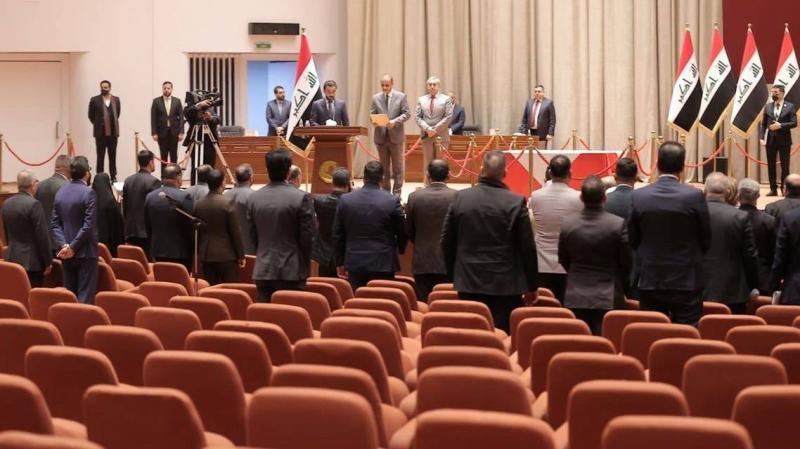Iraq entered a phase of political stalemate yesterday that may last for months, a pattern that typically follows general elections, with political elites competing for positions in the new government. Meanwhile, Iraqis are increasingly disillusioned with the political process, accusing many of their leaders of corruption and sectarian politics, amid fears of renewed violence and assassinations, which have started to surface in recent days, especially between the Sadrist movement and some Iran-affiliated armed factions. Recent rumors and accusations have circulated regarding involvement in mutual assassinations.
Yesterday, Sunni MP Mashaan al-Jubouri openly stated that "the majority of political forces boycotted the parliamentary session due to the lack of an agreement on the position of President of the Republic among some blocs." This resembles an indirect acknowledgment that the problem preventing the convening of the session on February 7 for the election of a president, months after the parliamentary elections on October 10, 2021, stems from a lack of consensus or clarity regarding the conditions and gains of "sectarian allocation" among the parties.
The political scene is complicated further, as observers and analysts, according to Agence France-Presse, agree that this delay exacerbates the political situation, given that the President typically selects the Prime Minister within 15 days of election, who is usually named by the largest coalition in parliament. Typically, the naming of the Prime Minister is agreed upon among the major political forces. However, so far, these forces have been unable to form a coalition or agree on a name for the Prime Minister's post, which practically handles executive power, succeeding the current occupant, Mustafa al-Kadhimi. Once named, the Prime Minister has a month to form the government, but the path to this political process appears complicated even before it begins.
In light of this, Iraqi political analyst Hamza Haddad commented to Agence France-Presse that "no one wants to be in the opposition; everyone knows how to share the spoils," speaking of the possibility of forming a "broad coalition." However, the greater fear in the country, while awaiting the distribution of shares and consensus, remains the return of violence or assassinations, as political tug-of-war often accompanies incidents of violence from time to time.
In late January, three rockets fell near the home of Parliament Speaker Mohammed al-Halbousi, who is allied with Sadrist leader Muqtada al-Sadr. Additionally, authorities announced in November 2021 that al-Kadhimi survived an assassination attempt.
It is noteworthy that the current struggle primarily involves Sadr, who claims he has sufficient majority in parliament to move forward with forming a "national majority government," hoping to disentangle from the consensus tradition that often hampers decision-making processes. However, this means that he is excluding the "Coordinating Framework" allies, which include the Fatah Alliance, representing the Popular Mobilization Forces (largely composed of Iran-aligned armed factions), which secured 17 seats in the elections, and the State of Law Coalition led by former Prime Minister Nuri al-Maliki (33 seats), along with other Shiite parties.
The Coordinating Framework insists that it has the majority in the House of Representatives, thus claiming the right to form the government or appoint its head, complicating the situation in the country. There is also another dispute between the Kurdistan Democratic Party allied with Sadr and the Patriotic Union of Kurdistan closer to the Framework. The former insists on its candidate Hoshyar Zebari for the presidency, while the latter insists on renewing President Barham Salih’s term, leading this disagreement to conclude parliamentary sessions without results yesterday.




